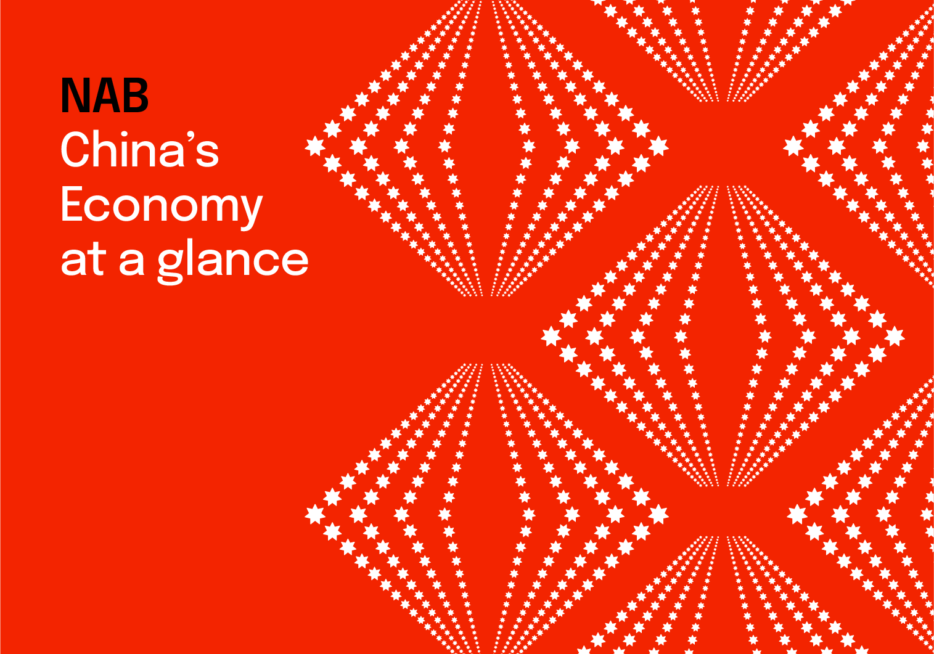China’s growth beat expectations in Q1, but big question marks around its sustainability

Insight
By 2050, demographers say close to 40 per cent of China's population will be above 60. But what is a worrisome burden for the Chinese government and families, is also an opportunity for Australian businesses.

When Prime Minister Malcolm Turnbull wanted to highlight an Australian business success story in a major speech in Shanghai to 1,000 Australian and 800 Chinese business leaders at Australia Week in China, Julie Jackson, Managing Director of the aged-care firm AVEO, was not expecting a shout-out.
“You’ve got to be ready to build relationships, you’ve got to be a bit brave, but honestly it’s the opportunity of a lifetime.”
“I was absolutely surprised, humbled, I can’t believe it to be honest,” she said.
“We’ve worked so hard as a team and obviously it shows that the people that we’ve been speaking to are liking our project and are supporting it and they’re sending that message up the chain.”
The Prime Minister had just finished outlining the enormous amount of investment coming into Australia from Shanghai-based companies, including the purchase of $14.5 billion worth of Australian goods.
The investment, the Prime Minister said, wasn’t just one-way before singling out Ms Jackson and AVEO, which just opened the first stage of a 2,500-resident retirement village near Hongqiao airport in Shanghai.
“Her firm’s competitive advantage, is the personal respect she shows to all customers and staff,” the Prime Minister said.
“It’s the same customer-focussed, serve-the-people, culture that led those earlier investors to do so well nearly a century ago over on Nanjing Road.”
Mr Turnbull was referring to the bustling commercial street across the river from Pudong where he was giving the speech. Four grand old department stores on that famous strip were built by Chinese-Australians between the two world wars.
Now Australian business pioneers like Ms Jackson are building and running a new type of business catering to an ever-growing market in health and aged care. Indeed, 134 representatives of Australia’s aged-care and health sectors were present at the prime Minister’s speech.
The need for aged care centres like the one Ms Jackson is running are particularly important in China as the country’s rapidly ageing post-one-child population creates a big challenge in caring for elderly parents.
By 2050, demographers say close to 40 per cent of China’s population will be above 60. But what is a worrisome burden for the Chinese government and families, is also an opportunity for Australian businesses.
Ms Jackson said the scale of what AVEO had built was something we’ve never seen in Australia before with room for up to 2,500 people when fully occupied. The site itself is 110,000 square metres with 150,000 square metres of buildings.
Included in the vast campus is a retail space including 8,000 square metres of clubhouse, a gymnasium, library, media room, restaurants – “basically, you name it, we’ve got it” says Ms Jackson.
“Our purpose is to make sure that these senior people who’ve given us their savings enjoy a secure retirement lifestyle”.
ASX-listed Aveo Group has a 30 per cent stake in the joint-venture company, which owns what Ms Jackson calls a “campus”.
Inevitably there are cultural differences to operating an aged-care facility in China as opposed to Australia, says Ms Jackson.
“Here we call it a campus, if it was in Australia, we would call it a village. The reason we call it a campus here is because we recognise that seniors in China, looking at the current demographic, have come through the cultural revolution,” she says.
“A lot of them didn’t get the opportunity to lead a care-free life in university in a campus, and we’re giving them a chance to have that.”
Ms Jackson said the library on the campus looks to rival Oxford University’s own collection. Ms Jackson said AVEO also look to Australian businesses, among others, to provide clean and safe products that their elderly residents are clamouring for.
“Whether that’s vitamins, beef, dairy – we can get all of that here, to China. Our residents actually want to see that sort of thing”.
“What we’re looking for are products which will assist our residents to age gracefully and to maintain their independence for as long as absolutely possible.”
When asked what advice she has for Australian businesses who are considering taking the plunge into the Chinese market, Ms Jackson says “patience and perseverance are a key part of doing business [in China]”.
“You’ve got to be ready to build relationships, you’ve got to be a bit brave, but honestly it’s the opportunity of a lifetime.”
© National Australia Bank Limited. ABN 12 004 044 937 AFSL and Australian Credit Licence 230686.